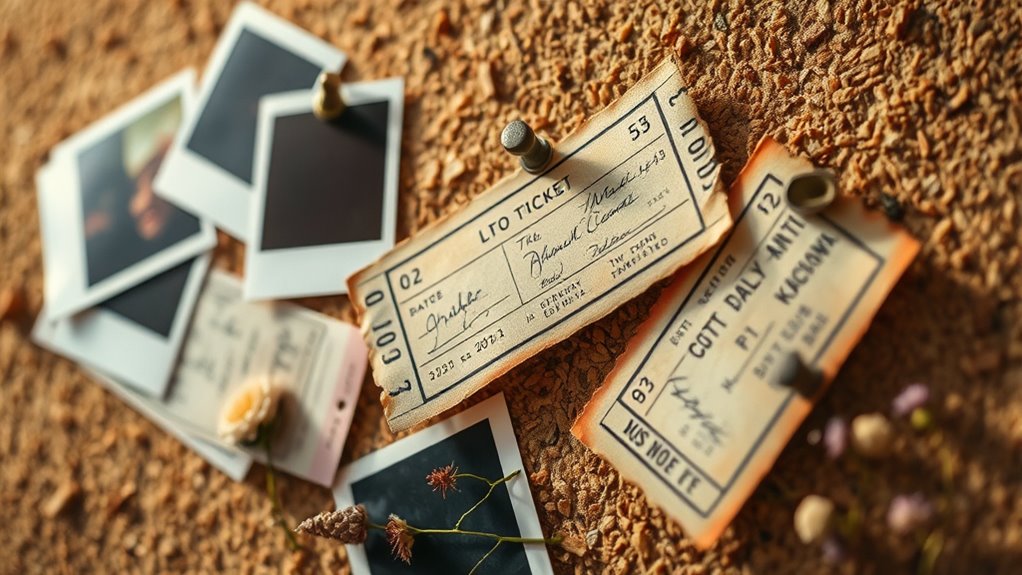Holding onto old ticket stubs helps you preserve vivid memories and strengthens your personal identity by serving as tangible reminders of meaningful moments. These keepsakes evoke nostalgia and emotional connections, reminding you of joyful times and shared experiences. They become powerful cues that reinforce who you are and your story. If you want to discover more about how these reminders shape your memories and bonds, keep exploring what makes mementos so meaningful.
Key Takeaways
- Old ticket stubs serve as tangible memory cues that evoke specific emotions and recall memorable experiences.
- They act as physical links to personal history, reinforcing identity through visual reminders of significant events.
- Ticket stubs trigger sensory memories, such as sights, sounds, and feelings associated with the experience.
- They help preserve shared social bonds by reminding individuals of collective moments and special occasions.
- Keeping ticket stubs allows for a curated collection of meaningful mementos that maintain emotional connection over time.
The Power of Nostalgia and Emotional Connection

Have you ever noticed how a familiar scent or song instantly transports you back to a special moment? That’s the power of nostalgia and emotional connection. Music memorabilia and childhood keepsakes serve as tangible links to your past, triggering vivid memories and feelings. When you see a concert ticket stub or a favorite toy, it’s not just a thing; it’s a doorway to a time when life felt simpler and more joyful. These items evoke warmth and longing, strengthening your sense of identity. They remind you of relationships, milestones, and moments that shaped who you are today. Holding onto these mementos keeps your memories alive, allowing you to reconnect with your personal history whenever you need a comforting boost. Additionally, understanding the emotional significance of these items can deepen your appreciation for their role in preserving your story.
How Memory Cues Help Preserve Personal Identity
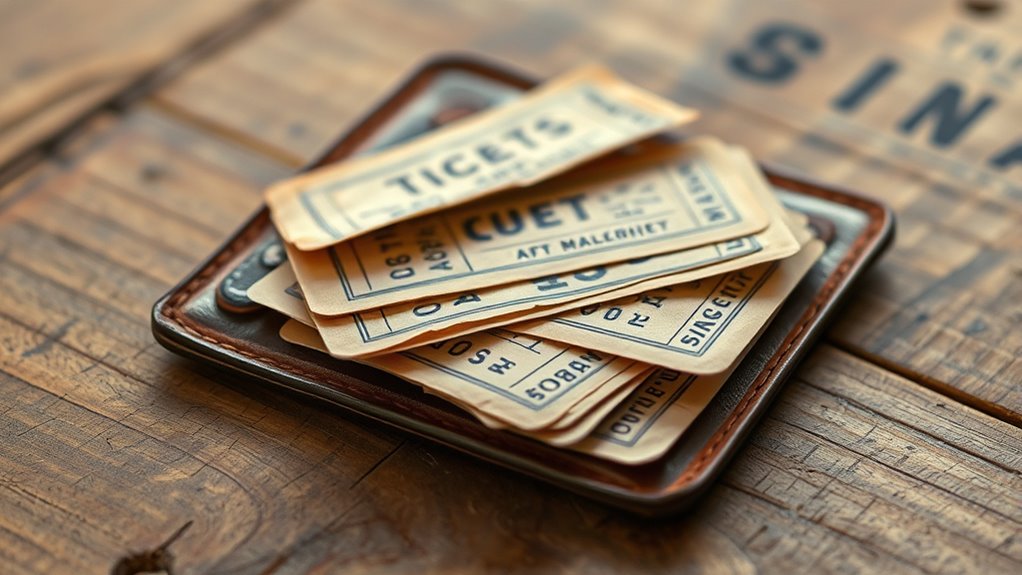
Memory cues serve as vital anchors that help you maintain a clear sense of who you are over time. They connect your past experiences to your present self, reinforcing personal identity. Digital archives, like photo albums or online journals, preserve key moments that shape your story. Sensory triggers—such as a familiar scent or a favorite song—immediately evoke memories that reaffirm your sense of continuity. These cues allow you to reflect on your growth, values, and relationships, anchoring your identity amidst change. The integration of automation technologies into daily life can also influence how we retrieve and associate memories, further shaping our personal narratives. By actively engaging with both tangible items and digital memories, you reinforce your understanding of yourself. Ultimately, memory cues create a cohesive narrative, ensuring your personal identity remains resilient and authentic over the years.
The Psychological Significance of Tangible Reminders
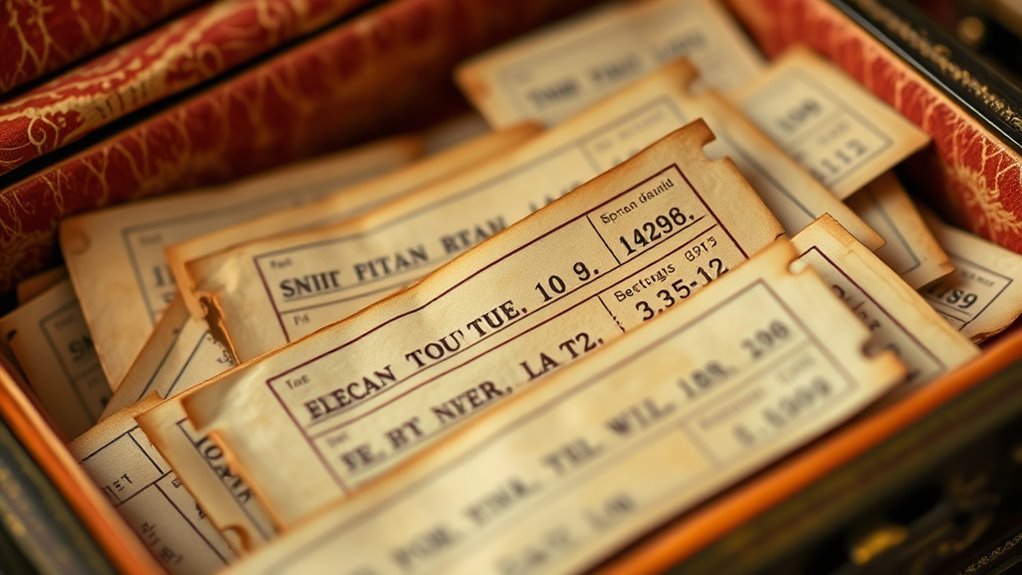
Tangible reminders like photographs, keepsakes, or personal mementos play a powerful role in shaping your psychological connection to the past. They serve as physical anchors, helping you relive memories and emotions tied to specific moments. While digital archiving offers a convenient way to store digital versions of these reminders, holding an actual object can evoke deeper feelings. Minimalist collecting encourages you to select meaningful items rather than accumulating clutter, ensuring each keepsake has genuine significance. These physical objects act as sensory triggers, making memories more vivid and accessible. Recognizing the traits of narcissism can help you understand why certain objects hold particular emotional weight, as they may connect to your self-identity or past experiences. By curating a thoughtful collection of tangible reminders, you reinforce your personal history and maintain a tangible link to your experiences, fostering a sense of continuity and identity.
The Role of Social Bonds and Shared Experiences
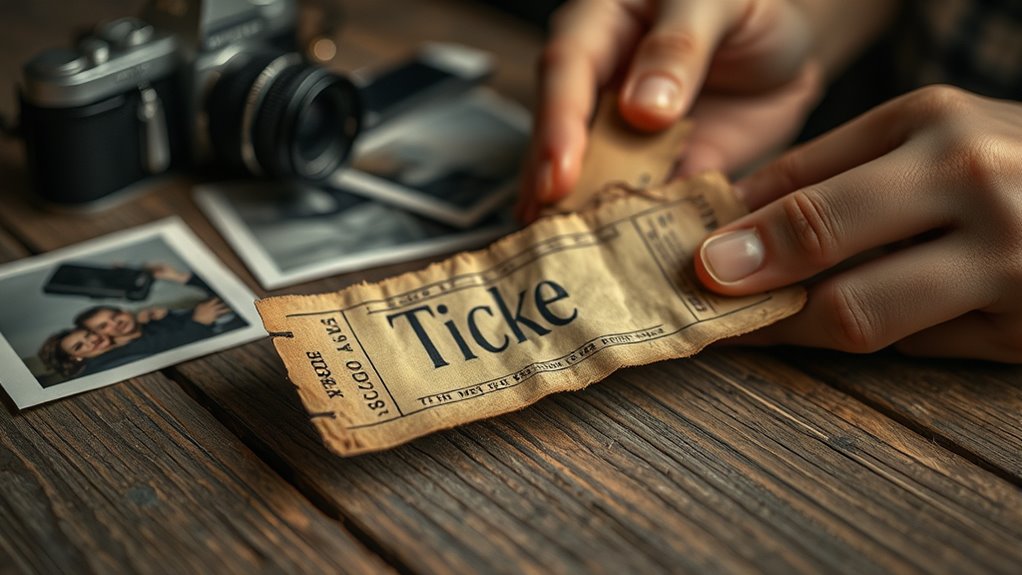
Shared experiences and social bonds create powerful memories that strengthen your sense of connection and identity. When you participate in shared adventures, you forge emotional ties that become lasting reminders of those moments. These shared moments often turn into meaningful keepsakes that symbolize your social bonding. To deepen your understanding, consider these aspects:
- Creating lasting memories through shared adventures that highlight your collective journey.
- Strengthening emotional bonds by reminiscing about these experiences together.
- Transforming shared moments into tangible mementos that serve as reminders of your social bonding.
Tips for Collecting and Cherishing Your Mementos
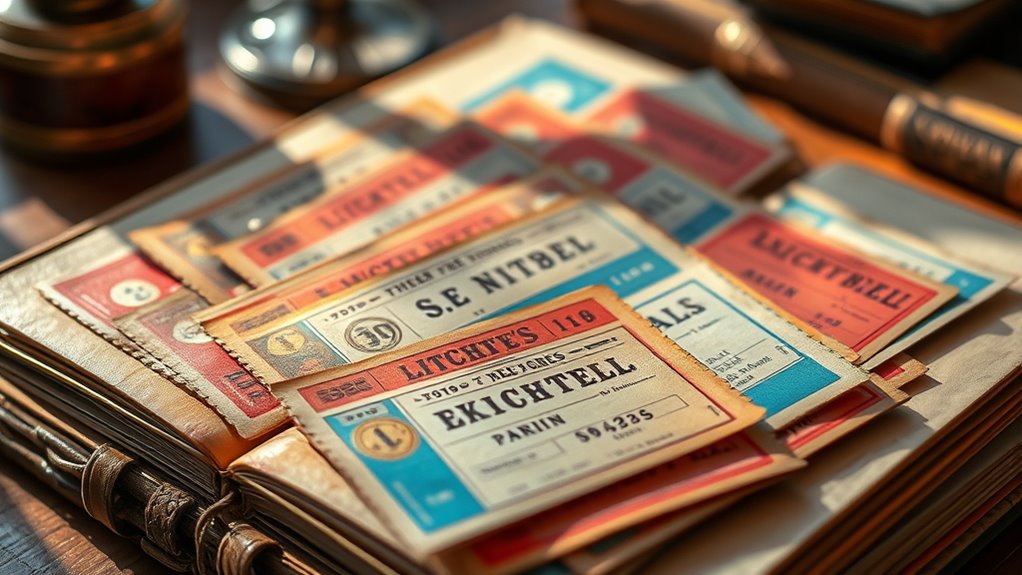
To effectively collect and cherish your mementos, start by choosing meaningful items that truly represent your experiences, rather than keeping everything indiscriminately. Organize your collection by creating a digital archive; scan or photograph items for easy access and preservation. For physical mementos, consider a creative display—use shadow boxes, photo frames, or decorative albums to showcase your favorites. Regularly review and update your collection, removing duplicates or less significant items. Keep a dedicated space for your most treasured memories to enhance their emotional value. Use labels or notes to add context. This approach guarantees your mementos remain special and manageable, helping you relive moments without clutter. Remember, quality and significance matter more than quantity. Additionally, understanding the importance of proper application timing for pimple patches can help you maintain clear skin while preserving your cherished keepsakes.
Frequently Asked Questions
How Do Memory Cues Differ Across Cultures?
You might notice that memory cues differ across cultures because of variations in cross-cultural symbolism and collective memory practices. In some societies, symbols like ticket stubs serve as powerful reminders of shared experiences, reinforcing group identity. Others may focus less on individual keepsakes and more on communal rituals. These differences shape how you connect memories to cultural contexts, influencing what cues you find meaningful and how you preserve your personal and collective histories.
Can Collecting Mementos Improve Mental Health?
Imagine gently holding onto tokens of your past; collecting mementos can boost your mental health by strengthening emotional attachment and serving as nostalgia triggers. These keepsakes help you reconnect with joyful memories, reducing stress and fostering a sense of stability. By cherishing these small treasures, you actively nurture your emotional well-being and create a comforting link to your personal history, making life’s journey feel more meaningful and balanced.
What Are the Best Ways to Organize Old Ticket Stubs?
To organize your old ticket stubs effectively, start with ticket stub preservation by scanning or photographing each one. Use labeled binders or storage boxes for memorabilia organization, arranging stubs chronologically or by event. Consider creating a digital archive or scrapbook to keep memories accessible and protected. Regularly review and update your collection to maintain order, making it easier to enjoy or share your cherished moments whenever you want.
Do Age or Personality Influence Attachment to Memorabilia?
Did you know that studies show your age and personality markedly shape how you attach to memorabilia? You likely value items like ticket stubs for their sentimental value, which helps reinforce your personal identity. Younger people often keep souvenirs to remember milestones, while older individuals see them as links to cherished memories. Your personality influences whether you keep items for emotional comfort or practical reasons, highlighting how both factors affect your attachment to memorabilia.
How Can Digital Memories Complement Physical Keepsakes?
You can enhance your memories by combining digital backups with physical keepsakes. Digital tools like virtual scrapbooks let you organize and preserve photos, videos, and stories effortlessly, complementing your physical memorabilia. By doing this, you guarantee your memories are protected from loss and easily accessible. This blend of digital and physical keepsakes creates a richer, more dynamic way to relive special moments, making your memories both tangible and virtually immortal.
Conclusion
Keeping old ticket stubs isn’t just about nostalgia; it’s about preserving your identity and connecting with meaningful moments. Studies show that tangible reminders like ticket stubs can boost happiness and reduce stress. So, next time you hold onto a ticket, remember it’s more than paper—it’s a powerful cue that keeps your memories alive, strengthens bonds, and enriches your sense of self. Cherish those mementos; they’re your personal history in the making.
